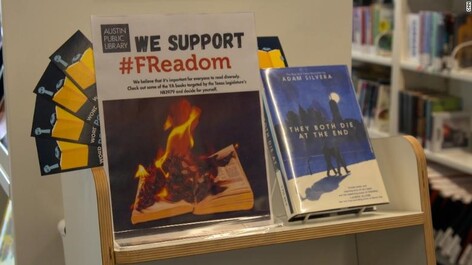 By Luccia Moraes Recently, some school districts in the southern U.S. have been facing the troubling issue of book banning. Some parents and school officials are banding together to eliminate certain texts that discuss topics of racism, sexuality, or other controversial subjects. However, censoring literature can have damaging consequences. Books are a critical part of education and have been used to spread powerful messages and connect people throughout history. Little by little, more states are increasing restrictions on books that schools and libraries have access to. In one Oklahoma school district, a bill to prevent school libraries from possessing books on gender identity, sexuality, or sexual activity was brought to the State Senate. Books dealing with LGBTQ+ topics and coming of age novels that feature LGBTQ+ characters have been vanishing from shelves, as one parent claims that these books lead students to “question their sexual orientation when they don’t even know what it means.” Additionally, books about racism and racial discrimination are being banned as well. For example, the Nobel Prize winning book The Bluest Eye by Toni Morrison, who is a renowned writer, is one of the many books parents in Birdville, Texas, are opposing. One mother says the book is “some of the most explicit material you can imagine." The Bluest Eye is a story about a black girl growing up in the post-Great Depression US, dealing with a difficult life. Isn’t banning books about racism a racist act in itself? On January 10, a county school board in Tennesse banned the Pulitzer Prize-winning graphic novel about the holocaust Maus from the eighth-grade curriculum, due to inappropriate language, conspicuously ignoring the necessity for students to learn about such a tragic time in history. Failing to educate kids about the atrocities of World War II can lead to holocaust denial, an increasing concern today. In Virginia, a local school board moved to hold a book burning for certain books, including Adam Rapp’s 33 Snowfish, one of the American Library Association’s 2004 book picks. A board member defends the act saying, “I think we should burn those books in a fire.” Burning books is particularly troubling because of its direct link to Nazi book burnings which are often associated with fascist, repressive governments. It is harmful to education and to society as a whole to selectively destroy books we don’t like or agree with. Some alarmed librarians are fighting back. Librarians in Austin, Texas, for example, formed a group called #FReadom Fighters, to spread a message and retaliate against what they call “a war on books.” Additionally, the president of the Texas Library Association, Mary Woodard, started an anonymous hotline for librarians to call and share the issues they’re facing about book laws and restrictions in their libraries. The Texas Library Association (TLA) also released a statement confirming their opposition to literature censorship in education. Books are integral to learning. Using profanity as an excuse to remove important books is simply a way to veil prejudice. All students deserve to feel represented through books at their libraries. Moreover, school environments are an appropriate place to expose kids to different perspectives and historical events. We at Council Rock North are fortunate enough to have access to books with a wide range of topics, an opportunity all students around the country are entitled to have too.
0 Comments
|
Archives
February 2022
Categories |
 RSS Feed
RSS Feed
